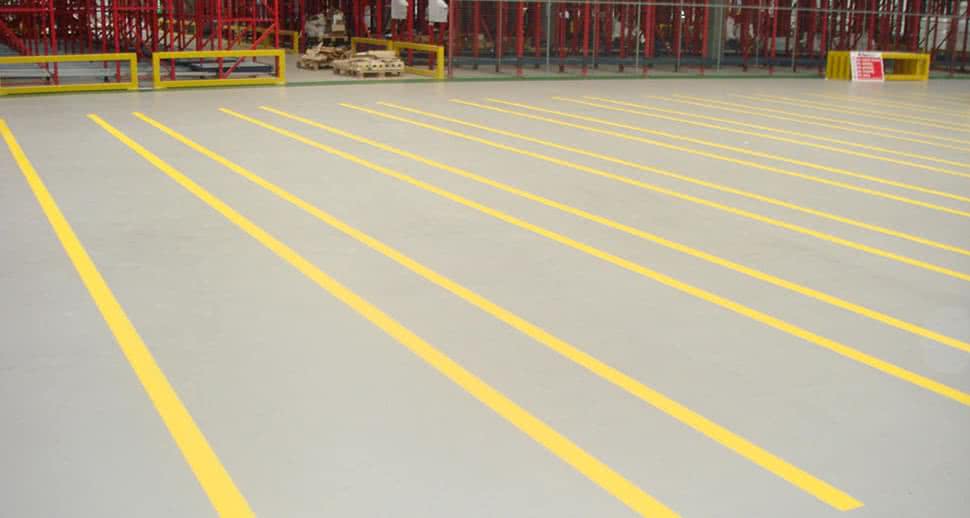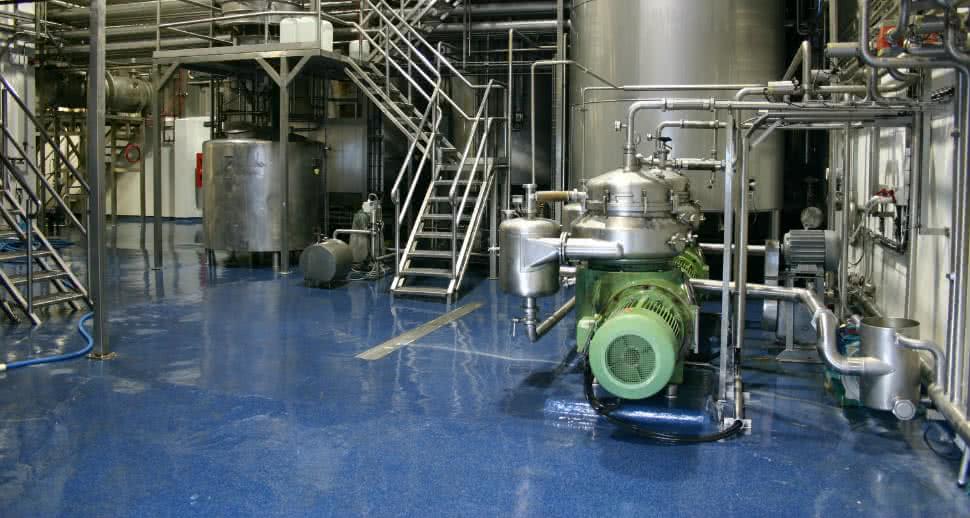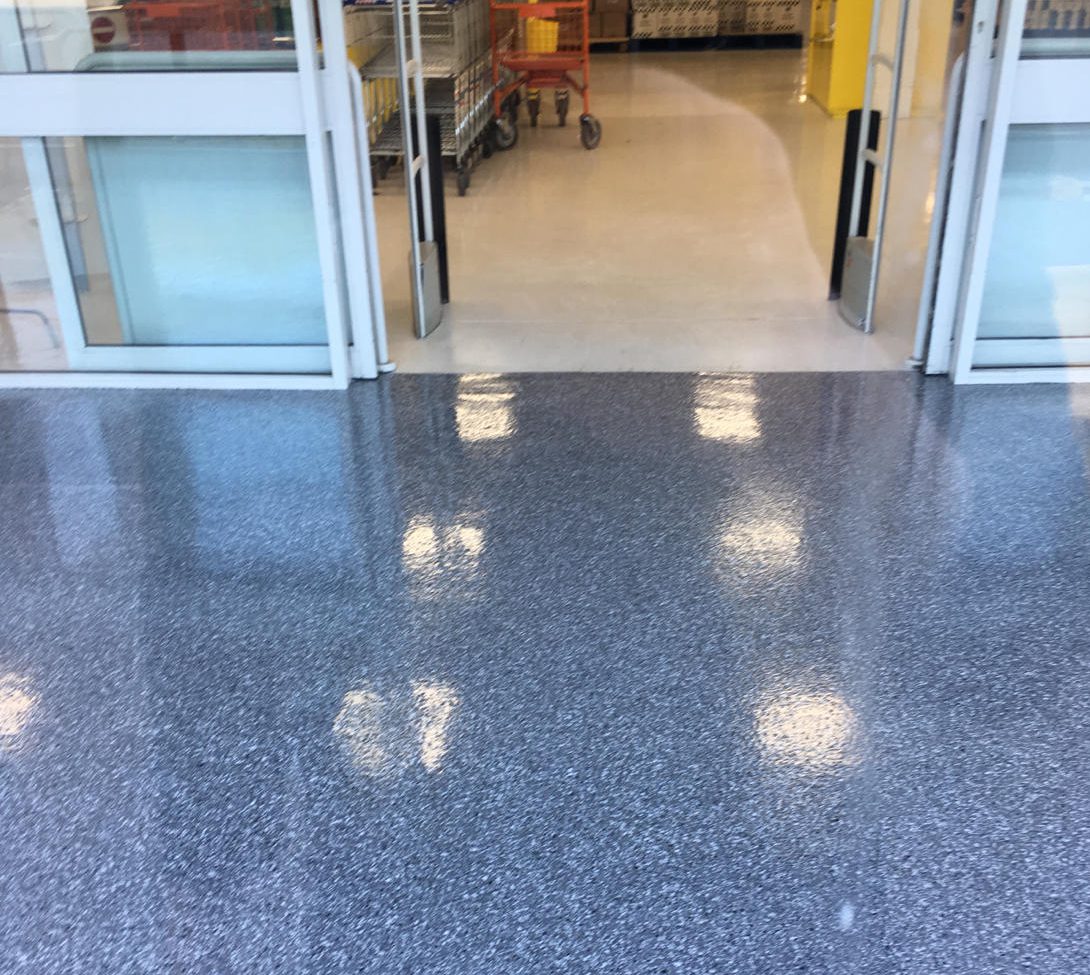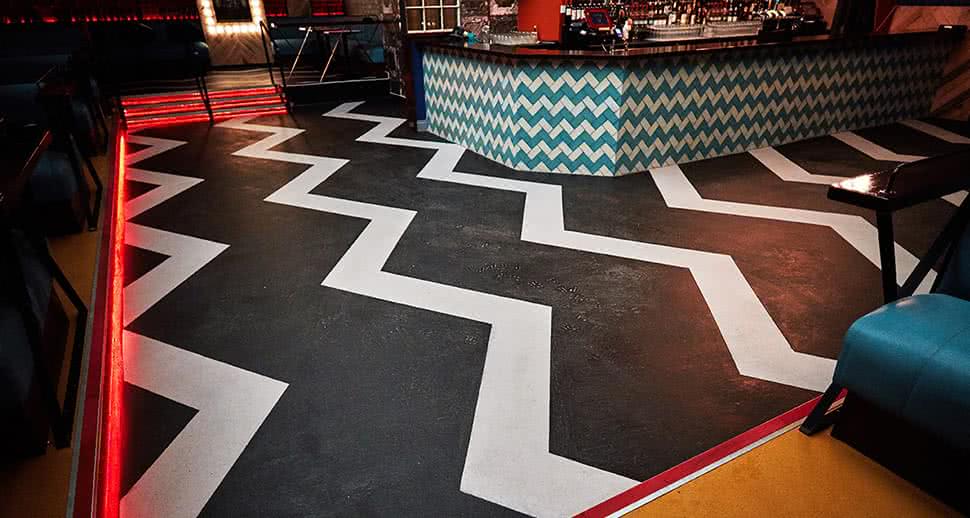7 factors to consider when selecting industrial flooring
With all the elements to be chosen and specified ahead of each construction project, there is little time for architects, designers and engineers to become an authority on the types of industrial flooring available in the UK.
Challenges they may face when choosing a floor include requiring a quick installation with minimal disruption, fast cure time, certified to food conformity, anti-skid properties and design.
Each resin flooring variety, whether epoxy, polyurethane or PMMA, has its advantages according to the situation. Those involved in site planning should evaluate the following seven key elements of a floor’s use to select the right type of industrial resin flooring.

How long does the flooring take to install?
The project manager will need to assign an allowed time for the flooring installation. Many epoxy flooring systems require at least 12 hours drying time in between coats and a few days to completely cure properly. This long drying time can seriously impact the project’s deadlines and disrupt the business.
FloorTech’s patented PMMA resin flooring system can be installed quickly and completely cures within 1 hour. The fastest available cure time on the market, meaning less downtime and disruption for the project.
What is the location used for?
The physical conditions relating to the location’s primary use will influence the most appropriate type of industrial resin flooring to choose from. PMMA or polyurethane, for example, offer extra benefits in facilities that handle or process milk or dairy products. These two coatings are resistant to organic lactic acids, which will corrode or stain an epoxy resin floor. By contrast, PU offers no protection against sulfuric acids, so industries, where these are stored or handled, should choose PMMA or epoxy instead.
PMMA resin flooring is a popular choice in food & beverage environments, such as meat production, because its hygienic, closed-pore properties form a bacteria-resistant barrier, is certified to food conformity and makes it much easier to clean.

Light or Heavy Traffic?
The volume of traffic passing over an industrial floor will be a key factor in choosing an appropriate resin variety. For example, a busy warehouse floor with constant forklift traffic will have different flooring requirements to a storage room in a small retail shop with light foot traffic.
The type of traffic will help identify the right resin material for your purposes; for example, a parking deck floor requires the ultra-hard, durable surface offered by epoxy or PMMA resin floor to withstand continuous vehicle traffic.
Conversely, a gymnasium floor may be better suited to the more flexible finish of polyurethane flooring. The volume of traffic is another important factor, especially as it affects cleaning, maintenance and repair costs.

How big is the budget?
When it comes to choosing an industrial flooring system, the purpose is a more reliable factor than the cost in the long term, but inevitably budget will influence the decision. It’s worth taking a broader perspective of cost, however. Materials and installation are just one part of the equation. Over time, the costs of cleaning and maintenance, as well as repairing any damage or even replacing the floor, should be factored in.
In addition to materials and labour costs, you may need to account for time lost while your floor is being repaired. PMMA resin floors are the toughest and longest-lasting industrial flooring and can be quickly repaired. Our installers simply need to refurbish the damaged area rather than dismantle the entire floor and reinstall.
What is the surrounding environment like?
Various environmental conditions can affect industrial resin floors differently, including temperature, moisture and exposure. In this respect, PMMA resin flooring outperform the alternatives where resistance to high temperatures and direct heat are required, making it an ideal solution for hot environments. PMMA resin flooring is often found in front of ovens in a bakery, whereas epoxy flooring tends to be the go-to option where high electrical conducting is required.
In locations where there is heavy traffic or aggressive weather conditions, PMMA resin flooring is the most suitable. It is extremely durable, long-lasting, safe and scratch-resistant, as well as the easiest type of resin floor to repair.
What colour is suitable?
Colour is more than an aesthetic consideration. It also influences the maintenance, cleaning, brightness and comfort of a space or work environment. Where natural light sources are scarce, a lighter flooring colour can make space look brighter and larger, resulting in a more pleasant environment. By contrast, bold or flashy colours like yellow or red may seem warm and welcoming at first, but it can become tiring on the eyes over time.
White or cream appear clean and crisp but tend to reveal any stain or blemish instantly unless the surface is kept constantly clean. PMMA resin floors tend to be the most customisable, giving you an opportunity to personalise a space, for example by choosing a brand colour, patterns, graphics, logos or design for your floor.

What surface finish is required?
Industrial flooring systems come in a variety of finishes according to the surface’s intended purpose. Health and safety requirements in the UK often require an anti-skid coating in the workplace, particularly in wet conditions. Other coatings offer extra resistance to damage from heavy vehicle traffic or chemical spills and corrosion.
In public spaces or areas where loose tools and utensils are carried, a flexible floor finish can minimise damage from small scratches, either from high heels or dropped knives, for example. Where humidity or water is a factor, a moisture-resistant finish will create a formidable barrier against mould and mildew.
Likewise, locations that have to meet strict UK hygiene requirements, such as food processing and pharmaceutical industries, should go for a hygienic finish to limit the spread of bacteria.
Identifying the needs of your floor in these key seven areas can make the task of selecting an industrial floor an easy one. If you are interested in learning more about FloorTech’s resin flooring systems, then view our technical datasheets.
Or, contact us today to receive expert advice on which type of resin floor is right for your project.
Request a Quote
Please provide as much detail as possible about your specific needs & a member of our UK team will be in touch.
We do not install domestic flooring.